Medicine For Ringworm Infection
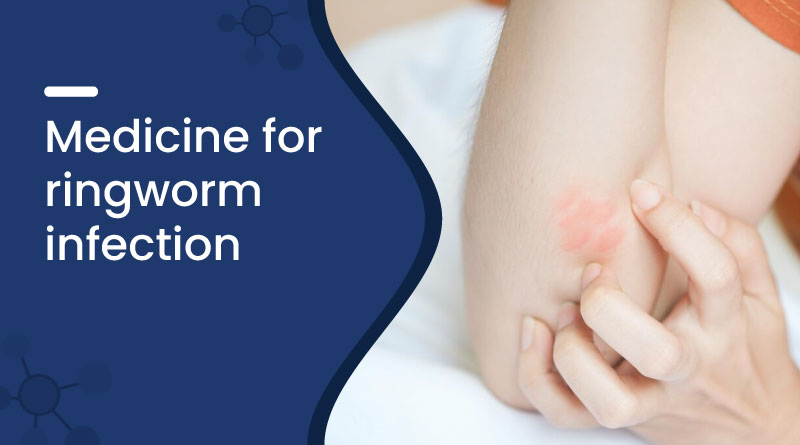

Medicine for ringworm infection was mainly used to treat the fungal infection of the skin, scalp, or nails. It treats symptoms such as red, circular rash, itching, scaly, dry skin, raised edge swelling, and hair loss due to infection. Medicine for ringworm infection treats ringworm by inhibiting the growth of the fungus responsible for the infection and eliminating it. It disrupts the membrane of the fungal cells, causing them to become leaky and ultimately resulting in the death of the fungus. Clotrimazole, miconazole, terbinafine, and tolnaftate are commonly used medications to treat ringworm. Take the medicine as prescribed by the Doctor. The dosage of medicine should be used as recommended.
What is medication for ringworm infection used for?
Medications for ringworm infection inhibit the development of the fungus responsible for the infection, which appears as a red, itchy rash on the skin, hair, or nails.
List of Generic Medicine Name for Ringworm Infection
Generic medications for ringworm infection primarily address symptoms like itching, burning, inflammation, and irritation, not the underlying cause of the disease.
Commonly Used Generic Medications for Ringworm Infection
| Salt Name | Benefits |
|---|---|
| Clotrimazole | Treats ringworm and inhibits fungal growth |
| Terbinafine Hydrochloride | Kills the fungus and relieves in ringworm |
| Tolnaftate | Treats ringworm and athlete’s foot, inhibits fungal growth |
| Miconazole Nitrate | Broad-spectrum antifungal, treats ringworm, athlete’s foot, and other fungal infections |
| Miconazole Nitrate & Tolnaftate | Absorbs moisture and treats superficial infection |
| Clotrimazole, Miconazole, or Tolnaftate | Treats ringworm, athlete’s foot, and other fungal infections |
Ringworm Medication
Ringworm (dermatophytosis) is a common fungal infection caused by Trichophyton, Microsporum, and Epidermophyton. Treatment usually involves antifungal medicines in the form of topical creams, sprays, or oral tablets. Below is a detailed guide to salts used in ringworm treatment.
Topical Antifungal Ringworm Medication
Topical antifungals are applied directly to the skin and are the first-line treatment for mild to moderate ringworm infections.
Clotrimazole
Clotrimazole damages the fungal cell membrane, stopping fungal growth. It is commonly used for athlete’s foot, jock itch, and body ringworm.
Miconazole
Miconazole alters fungal cell structures and prevents growth. Available in creams, powders, and sprays, it is effective for moist and sweaty skin areas.
Terbinafine (Topical)
Topical terbinafine kills dermatophytes by blocking ergosterol synthesis. It works quickly and provides relief from itching and redness.
Ketoconazole
Ketoconazole inhibits fungal cell membrane synthesis. It is available as creams, lotions, and shampoos, useful for skin and scalp infections.
Econazole
Econazole has both antifungal and antibacterial properties, making it effective in mixed skin infections.
Sertaconazole
Sertaconazole not only kills fungi but also reduces inflammation, providing relief from itching and redness.
Luliconazole
Luliconazole is a new-generation antifungal effective even in resistant cases. It requires only once-daily application.
Amorolfine
Amorolfine disrupts fungal cell walls and is often used for nail infections as well as skin ringworm.
Tolnaftate
Tolnaftate prevents dermatophyte growth and is widely used in powders and sprays for athlete’s foot and body ringworm.
Ciclopirox
Ciclopirox has antifungal and anti-inflammatory action, effective for both skin and nail infections.
Oral Antifungal Ringworm Medication
Oral antifungals are prescribed for severe, widespread, scalp, or nail infections where topical treatment alone is not sufficient.
Terbinafine (Oral)
Oral terbinafine kills dermatophytes effectively. It is commonly prescribed for nail and scalp infections and requires a shorter treatment duration.
Itraconazole
Itraconazole is a broad-spectrum antifungal effective for skin, nail, and systemic infections. It is often given in pulse doses for nail infections.
Fluconazole
Fluconazole works by inhibiting fungal cell membrane formation. It is often prescribed for scalp ringworm and nail infections with weekly dosing.
Griseofulvin
Griseofulvin stops fungal cell division and is one of the oldest antifungals. It is mainly used for scalp ringworm, especially in children.
List of Zeelab Medicine For Ringworm Infection in India
| Medicine Name | Composition | Benefits |
|---|---|---|
| Clozex Clotrimazole Antifungal Cream | Clotrimazole 1% Cream | Used as anti-inflammatory, treats ringworm, athlete’s foot, jock itch, reduces skin burning, inflammation, and itching |
| Fungizee T Cream | Itraconazole 1% & Terbinafine 1% Cream | Reduces itching, burning, and inflammation, treats ringworm, athlete’s foot, jock itch, and prevents the spread of infection |
| Terbifex Cream | Terbinafine Hydrochloride 1% | Treats fungal infections of the skin and nails, including ringworm, athlete's foot, and jock itch |
| Dermzex-BG Skin Infections Cream | Clotrimazole + Beclomethasone + Neomicin Cream | Used in ringworm including athlete’s foot and jock itch, relieves inflammation, itching, irritation, and burning |
| Lulibol Cream | Luliconazole 1% CREAM | Treats athlete’s foot, ringworm, jock itch, reduces pain, itching, and inflammation |
| Fungizee 100 Capsule | Itraconazole 100 mg | Treats ringworm and athlete’s foot, decreases pain, itching, redness, and irritation |
| Sertazee Sertaconazole Nitrate Cream | Sertaconazole Nitrate 2% w/w | Inhibits and kills the fungus, treats ringworm, athlete’s foot, jock itch, and other skin infections |
| Zelocip-CF Skin Infections Cream | Ciprofloxacin 0.5%, Fluocinolone Acetonide 0.025%, Clotrimazole 1.0% | Treats athlete's foot, jock itch, ringworm, relieves itching, redness, and swelling |
| Clozex 1% Dusting Powder | Clotrimazole 1% Dusting Powder | Treats athlete's foot, jock itch, and ringworm, reduces itching, redness, and discomfort |
| Terbifex Dusting Powder | Terbinafine 1% Dusting Powder | Treats athlete’s foot, ringworm, and jock itch, reduces inflammation and prevents infection |
| Terbifex 250 Tablet | Terbinafine 250 mg | Treats ringworm and other skin infections |
Best Antifungal Cream for Ringworm
Topical antifungal creams are the first-line treatment for ringworm infection. These medicines work directly on the affected skin, stop fungal growth, and provide quick relief from itching, redness, and irritation. A ringworm infection cream or ointment is usually recommended for mild to moderate cases.
Clozex Clotrimazole Antifungal Cream
Clozex is a widely used ringworm treatment cream that contains Clotrimazole 1%. It works by breaking down fungal cell membranes, effectively treating ringworm, athlete’s foot, and jock itch. This ringworm ointment also helps reduce burning, redness, and itching, making it a reliable option for everyday fungal skin infections.
Lulibol Cream
Lulibol Cream is a powerful ringworm infection cream formulated with Luliconazole. It is especially effective for resistant or stubborn fungal infections. This ringworm treatment cream reduces pain, itching, and irritation while stopping further spread of infection, offering fast relief and long-lasting protection when used regularly as directed.
Best Antifungal Tablets for Ringworm
For severe, widespread, or scalp and nail infections, doctors recommend oral antifungal medicines. A tablet for ringworm works from inside the body to fight fungal growth. These ringworm tablets are usually prescribed when creams and ointments alone are not enough for complete treatment.
Fungizee 100 Capsule
Fungizee contains Itraconazole 100 mg, a trusted ringworm tablet that targets deep and stubborn fungal infections. It is effective in reducing itching, redness, and inflammation while stopping the fungus from multiplying. This tablet for ringworm is often prescribed when topical treatments are not sufficient for complete recovery.
Terbifex 250 Tablet
Terbifex is a strong ringworm treatment tablet containing Terbinafine 250 mg. It works by killing dermatophytes, the fungi responsible for skin and nail infections. This ringworm tablet is a preferred choice for patients with severe, recurring, or widespread infections, ensuring faster and more complete healing from inside the body.
How to take ringworm infection medication?
For topical use:
- Clean and dry the infected area.
- Use the cream twice daily on the infection site.
- Continue the application for one week even after complete disappearance of the symptoms.
For oral use:
- Take the medicine daily with or without food or as prescribed by the doctor.
General method used to treat ringworm infection is:
- Keep skin dry and clean: Regularly wash the skin and dry the affected area to prevent spreading.
- Avoid Scratching: It prevents the spread of fungal infections and minimizes the risk of secondary bacterial infections, making treatment more effective.
- Avoid tight Clothing: Wear clean, dry clothes, and change them regularly, and avoid tight clothes, as they increase the infection risk due to sweating.
- Do not share personal items: Sharing personal items like towels, combs, and bedding may increase the chance of fungal infections.
- Prescription medication use: Always consult your Doctor if the OTC medicines are ineffective, and take the medicine as recommended.
How does ringworm infection medication work?
Ringworm infection medication works by disrupting the fungal cell membrane, inhibiting fungal growth, and killing the fungi.
What to avoid?
- Stop early treatment: If symptoms look better, and you discontinue the treatment, the fungus may still be present. Finish the full course as directed.
- Sharing personal items: Personal item sharing, such as towels, clothing, combs, and bedding, should be avoided as these can increase the chance of fungal infection.
- Steroid cream use alone: Topical steroids alone can worsen the symptoms; hence, we use only antifungal creams or antifungal-steroid combinations.
- Moisture and Poor Hygiene: Wearing tight clothes increases sweating and bacterial growth. Keep the infected area clean and dry.
- Wrong medication use: Do not use anti-bacterial medicine, as it is a fungal infection and can only be treated by antifungal medications such as Clotrimazole, Miconazole, Terbinafine, and Tolnaftate.
Benefits of Ringworm infection medication:
- Used as Fungistatic: Stop fungal growth
- As an Fungicidal: Kills the fungal colonies.
- Quick alleviation of symptoms: Relief from itches, redness, and discomfort
- Supports Healing: Encourages quicker healing of the skin, hair, or nails
- Decrease complication risk: It reduces the risk of complications, such as secondary bacterial infections
- Inhibit skin discoloration: It prevents post-recovery skin discoloration.
When to see a Doctor?
- If you have no improvement in 1-2 weeks with OTC medicine.
- If your symptoms worsen, such as increased redness, swelling, pain, or secondary infection.
- If the infection is widespread, on the scalp, beard, or nails, these require prescription oral antifungal medication.
- In case of recurring infections, which may indicate a deeper issue or incorrect diagnosis.
- In the case of immunocompromised patients (diabetes), more risk of developing and spreading infection.
- In the case of infants or young children. Consult a pediatrician.
Frequently Asked Questions (FAQs)
Q: How is ringworm treated?
A: Treatment of ringworm depends upon the infection severity, site, and type of medication used. Take the medication prescribed.
Q: How long does it take to heal from ringworm?
A: Mild skin infections take 1-2 weeks to recover, while severe infections, such as nail and scalp infections, take several weeks to months for healing.
Q: Is ringworm transmissible?
A: Yes, it can transform from direct skin to skin contact or by sharing personal items such as a towel, clothes, and a brush.
Q: Can I manage ringworm myself at home?
A: Yes, you can manage mild symptoms with cream. If symptoms worsen, then consult your Doctor.
Q: Are there any side effects associated with antifungal medications?
A: No side effects are generally seen. Mild irritation from topical use and nausea from oral medication can occur in some cases.
Q: How can I prevent ringworm?
A: You can prevent ringworm by:
- Maintain clean and dry skin
- Avoid sharing personal items
- Take the medicine as prescribed
- Not to stop the medicine early, even if complete disappearance of the symptoms.
Summary:
Ringworm symptoms are typically managed with medications, such as Clotrimazole, Miconazole, Terbinafine, and Tolnaftate, which inhibit and kill the fungus and relieve inflammation, itching, and discomfort. Natural herbs like Tea Tree Oil, Neem, Turmeric, Garlic, Aloe Vera, Holy Basil, and Calendula are the best herbal medicines for treating ringworm. Keep skin dry and clean, avoid scratching, avoid tight clothing, do not share personal items, and use prescription medication when necessary. Zeelab Brands such as Clozex Clotrimazole Antifungal Cream, Fungizee T Cream, Terbifex Cream, Dermzex-BG Skin Infections Cream, Lulibol Cream, Fungizee 100 Capsule, Sertazee Sertaconazole Nitrate Cream, Zelocip-CF Skin Infections Cream, Clozex 1% Dusting Powder, Terbifex Dusting Powder, and the Terbifex 250 tablet
Itraconazole (1% w/w) + Terbinafine (1%...
Fluocinolone acetonide (0.025mg) + Cipro...
Terbinafine 1% Dusting Powder

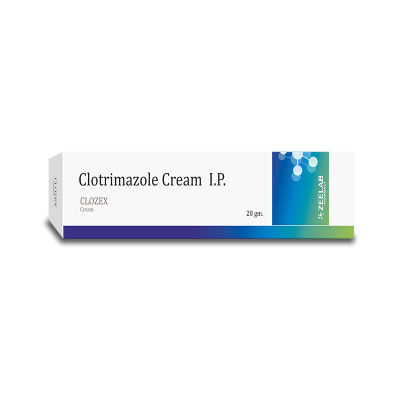
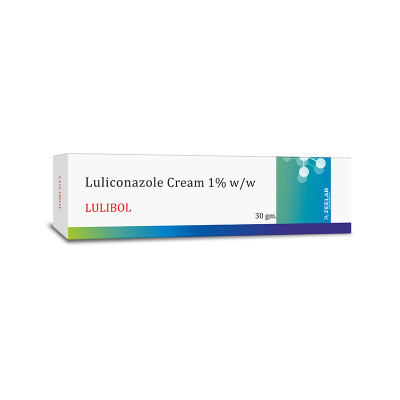
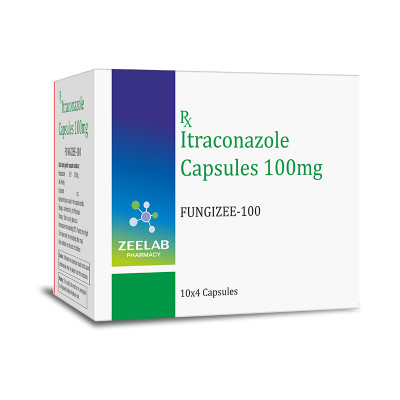
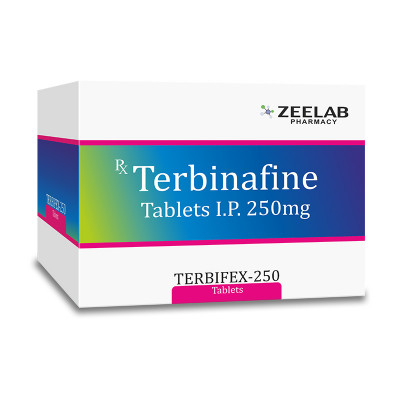
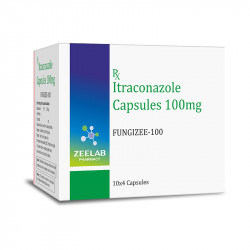
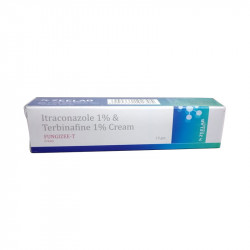
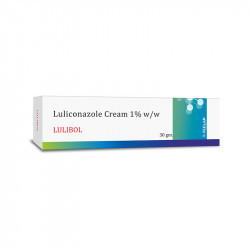
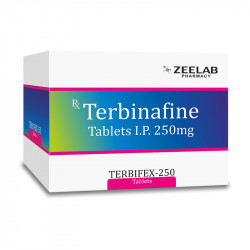
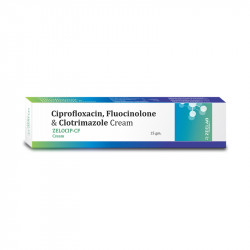
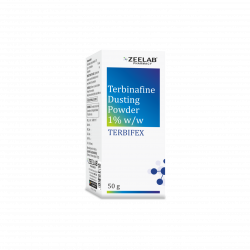
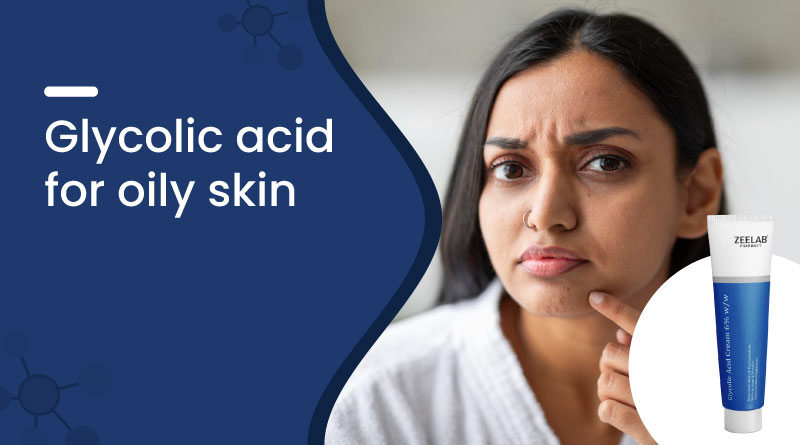
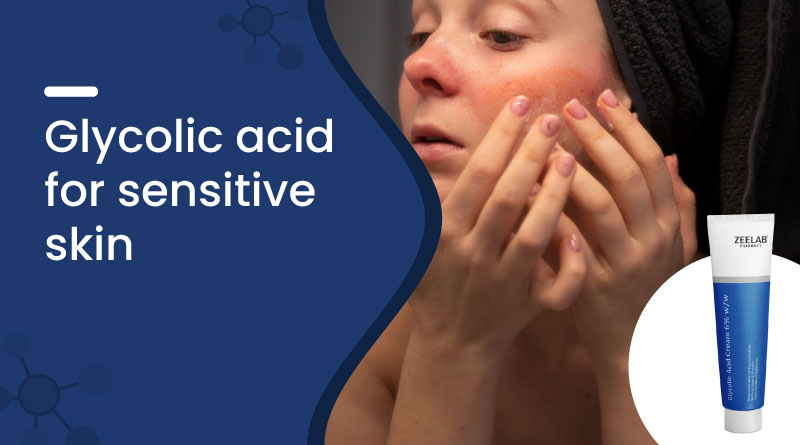
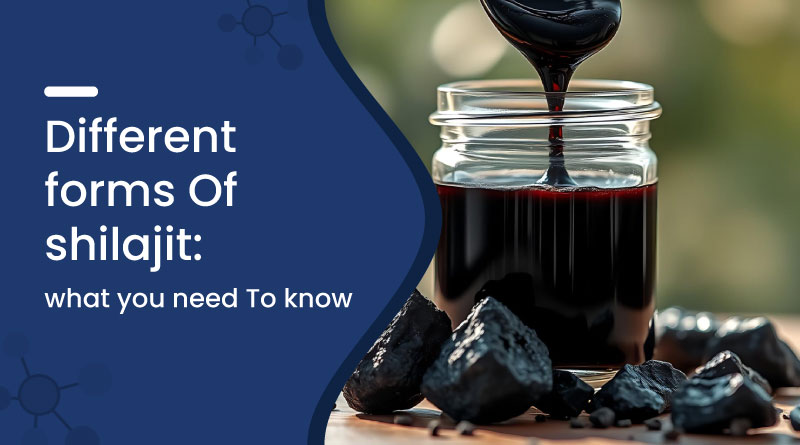
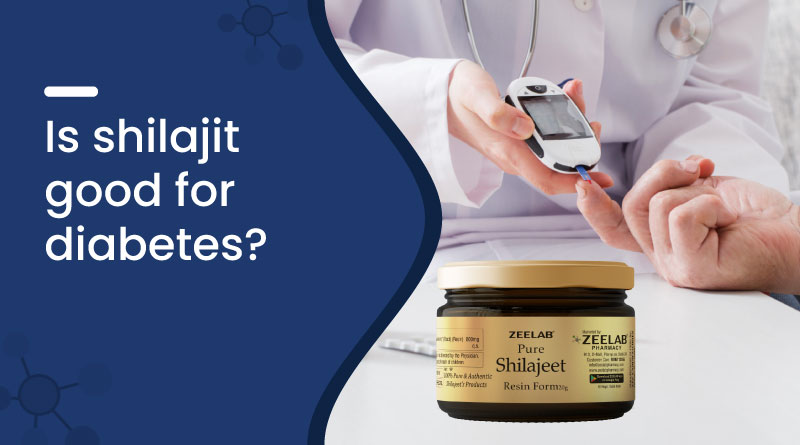
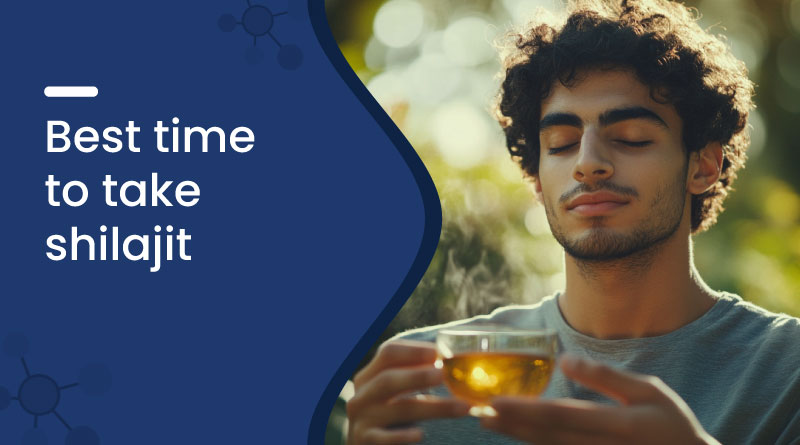
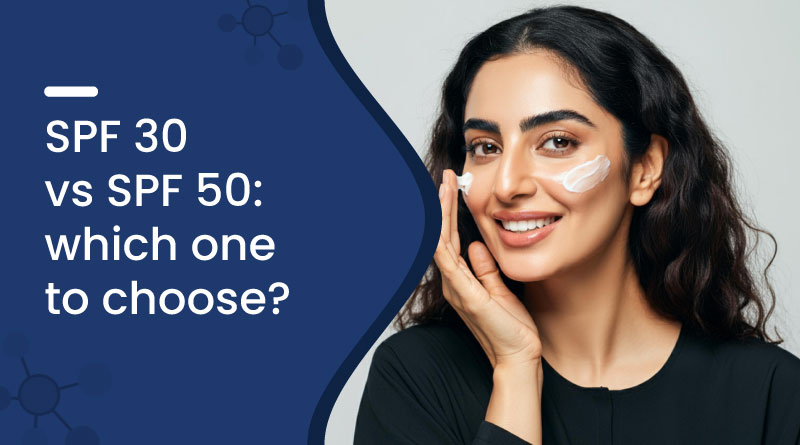


 Added!
Added!